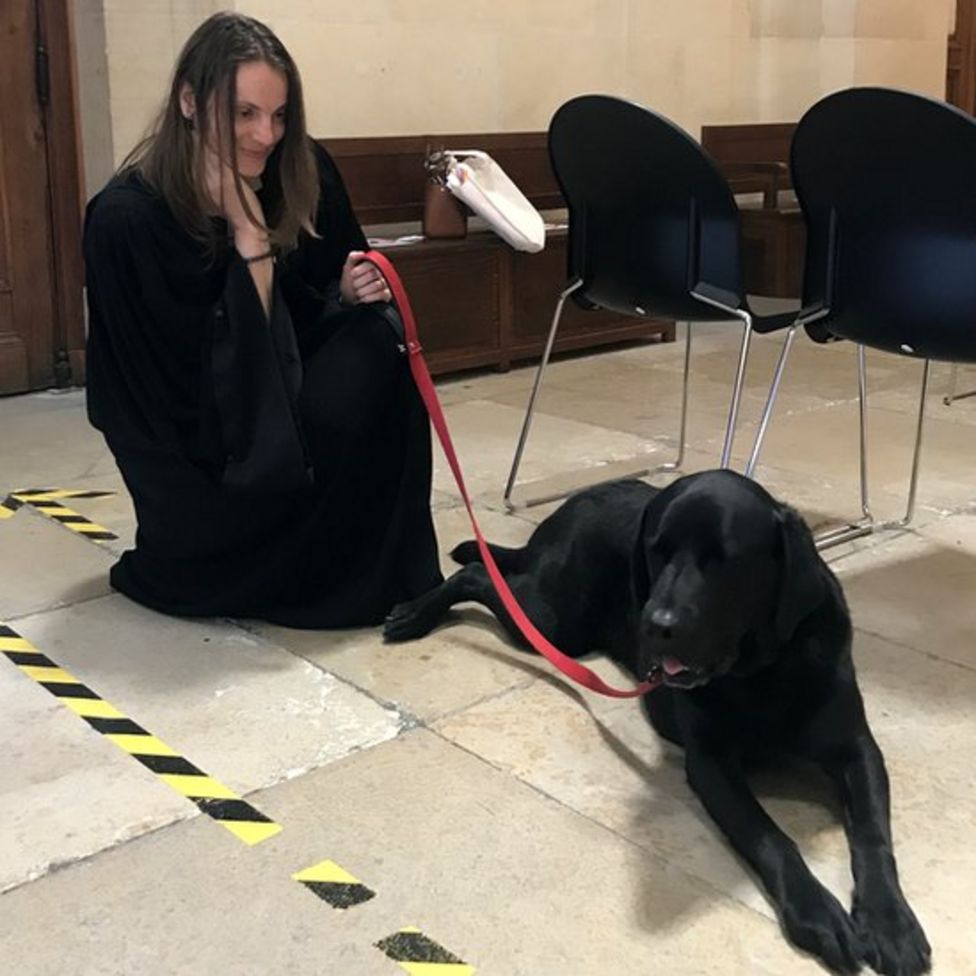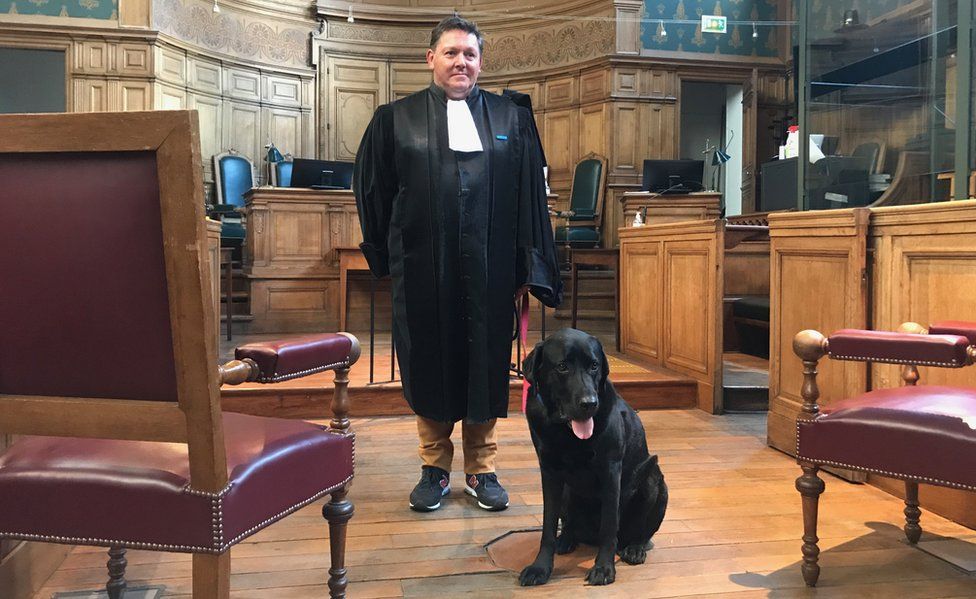
- Inspiring People -
- 5mins -
- 174 views
Meet “Lol” the black Labrador helping relax distressed witnesses in French courts
Black lab “Lol” lives in the local fire station and has been specially trained to calm anxious victims of crime in the stressful environment of a courtroom.
Labrador helps stressed witnesses in French court
A year-long pilot-study using a specially-trained dog to calm and reassure witnesses and victims in a French court has proved so successful that it is likely to be extended to other tribunals, reports ConnexionFrance. The try-out in Cahors, inspired by long-running similar schemes in some parts of the US, was initiated by prosecutor Frédéric Almendros.

The majority of the cases where Lol is used are those involving children or younger teens
Lol, a five-year-old black Labrador, lives at the local fire station and is called to court or to interview rooms when prosecutor Frédéric Almendros considers he might be of use.
Jean-Thibault Daniel, of the Handi’chiens association which owns Lol, said: “The consent of the victim or the witness is needed but there are relatively few cases where, if given the option of meeting Lol, they say they do not want to. The majority of the cases where he is used are those involving children or younger teenagers, who can easily be overwhelmed by the surroundings and procedures of a formal interview or court proceedings. Having a friendly, empathetic dog by their side makes all the difference.”
At first, Mr Almendros thought Lol’s role would be limited to keeping victims and witnesses calm while they waited for their case, but he was so well behaved that he was soon allowed into the courtroom. Mr Daniel said: “It was important that the dog did not interfere with proceedings, and he does not. He sits quietly at the side of the victim or witness, but I have seen him react and nuzzle or rub gently against people when they are becoming tense and upset and it does seem to calm them down, so they can carry on with their testimony or listen to the trial.”
Source: ConnexionFrance

Lol’s Special training
Lol went through the normal training given to all the dogs in the Handi’chiens association, which was set up initially to provide assistance dogs for people in wheelchairs or with conditions such as epilepsy. It has since added training for dogs that go into retirement homes or help people with mental health issues. Puppies are bought at the age of two or three months, and then spend 16 months with volunteer families, who have a mission to socialise the young dogs and also to expose them to different situations.
The dogs then go back to the association for six months of specific training, which in Lol’s case involved heightening his empathy for people. Mr Daniel told ConnexionFrance: “We are a recognised association and our work has been evaluated and overseen by the Ministry of Agriculture, which gave us reconnue d’utilité publique status in 2012. It was this recognition which led Mr Almendros to come to us with his idea. It was not as straightforward as you might think – one of the basic decisions was where Lol would live, because at first we thought it would be with gendarmes, but the law forbids gendarmes using dogs they have not trained themselves and their training is for police dogs, drug and explosive-finding dogs, and search and rescue, not accompanying dogs."
“As it turns out, having a dog live in the fire station is great for the fire-fighters and they are also able to use Lol in some situations where he can help calm distressed people. There was also the legal framework to be worked out, and basically the rule was agreed that it is the prosecutor who decides if the dog should be used with witnesses or victims.”
Source: ConnexionFrance

Lol is likely to carry on working in Cahors until retirement
Mr Almendros was so impressed by the results of the first trial year that he wrote to the Minister of Justice urging that tribunal dogs be used elsewhere. There are also moves in Parliament to provide a legal framework for their use and it is likely that three or four other tribunals will try using accompanying dogs from next year.
As for Lol, he is likely to carry on working in Cahors until retirement – at some point in the future. “There is no fixed age for retirement. Sometimes dogs just seem to have enough and stop doing what they are trained for, while others carry on, but most work until they are 10,” said Mr Daniel. “They then either retire to families who support the association, or stay with their people but do not work, sometimes with a new handi’chien in the house.”
Source: ConnexionFrance

The scheme has proven so successful that other courts have “borrowed” Lol
So far Lol has appeared in 80 different criminal investigations with victims ranging from three to 90 years old.
Alexia Mesthe runs a local branch of a national charity called France Victims. She and her colleagues, including social workers and jurists, assist around 600 people a year, of whom many are victims of domestic sexual abuse.
"Lol has been trained to nuzzle up next to victims, and that physical touch reassures them and helps them confront the legal challenges they will face," she told the BBC.
The scheme has proven so successful over the past two years that other courts across France have "borrowed" Lol. Several now have their own dogs, including the towns of Nevers and Nîmes.
Currently, the dogs in court have no official legal status but that could change soon.
French MP Huguette Tiegna from President Macron’s ruling La République en Marche party, along with 20 colleagues are pushing a bill through parliament that would give the animals judicial recognition on the grounds they help victims.
Prosecutor Almendros says the next experiment is to see whether Lol can help reform violent criminals.In his words: "If anyone can turn a repeat offender, its Lol."
Source: BBC

